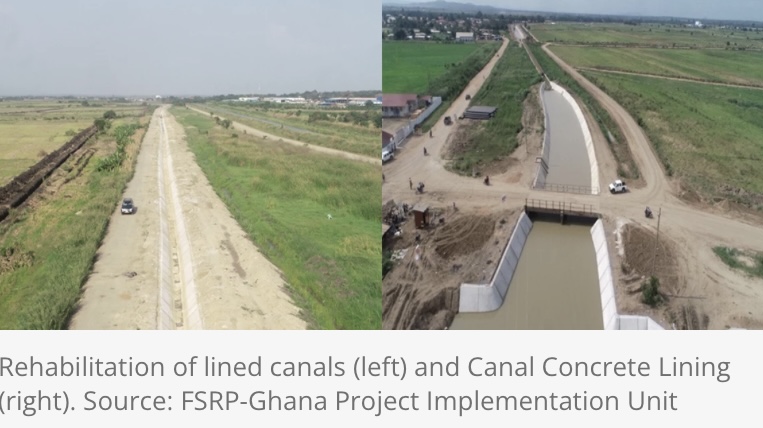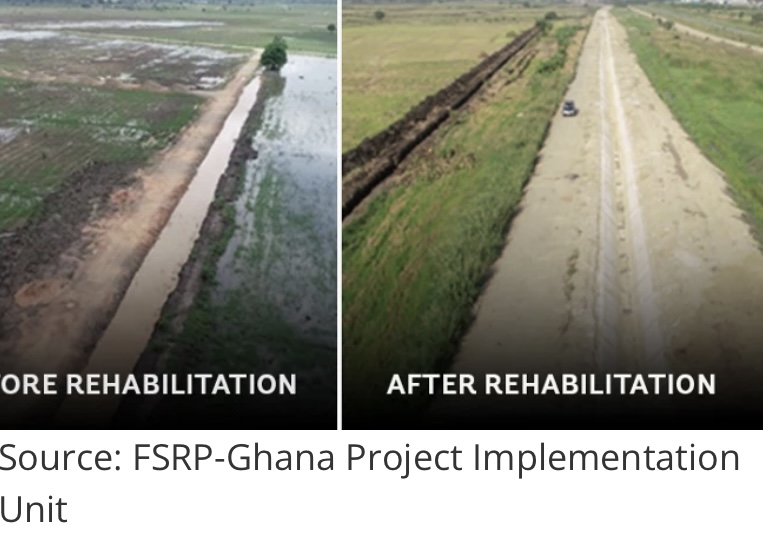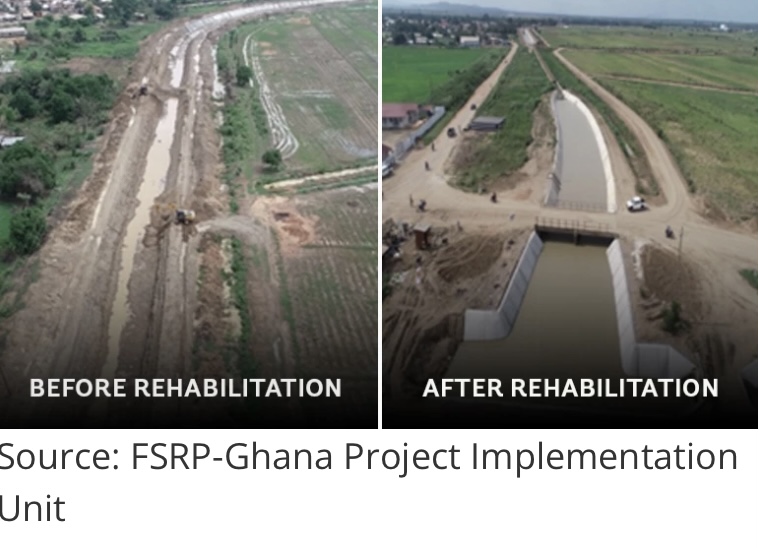Delivering Irrigation For Enhanced Productivity And Climate Resilience.
Climate change poses unprecedented challenges to Ghanaian agriculture. It reduces the predictability of rainfall, increases temperatures, and lengthens the duration of dry periods. A lack of access to irrigation stifles the resilience of agriculture in Ghana. The country possesses substantial irrigation potential: with estimates of irrigable land spanning from 360,000 to 1.9 million hectares although less than 3% of cultivated land is irrigated.i Consequently, farmers bear the brunt of shifting weather patterns and extreme events as the farming system is predominantly rain-fed.
“Most times, there was no water, especially during the dry season. Also, because of the poor state of the canals, water did not reach all the farms. Now that the scheme has been repaired, we get water to our fields all the time, and we are able to cultivate at least two times in a year.”
Felix Akonagam, Rice Farmer, Tono Irrigation Scheme
Delivering public infrastructure and complementary public goods to boost smallholder farmers' productivity and resilience is at the heart of the World Bank's response to farmers' vulnerability to climate change. In Ghana, the Ghana Commercial Agriculture Project (GCAP) saw tangible and long-lasting impacts. The project reached 14,264 beneficiaries, of which 37% were women.
GCAP invested $62 million in physical rehabilitation and modernization of public irrigation and drainage infrastructure in two irrigation schemes located on either side of the Volta River: the Kpong Irrigation Scheme (KIS) and the Kpong Left Bank Irrigation Scheme (KLBIS). Both schemes provide water to irrigate 7,391 ha, cropped by 2,835 smallholders (41% female) and several commercial farmers. The main crop cultivated on these irrigation schemes is rice. GCAP's interventions were critical for building climate resilience as they enhanced water security, made infrastructure more climate-resilient, and strengthened farmers' adaptive capacity. Rice average yield rose from 4.5 MT/Ha in 2017 to about 5.5 MT/Ha.




Leave a comment
Comments (0)
No comments yet. Be the first to comment!